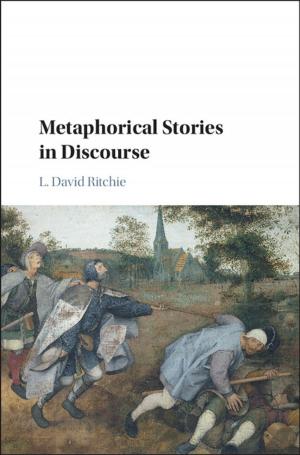| Author: | Erik Kenyon | ISBN: | 9781108530071 |
| Publisher: | Cambridge University Press | Publication: | February 28, 2018 |
| Imprint: | Cambridge University Press | Language: | English |
| Author: | Erik Kenyon |
| ISBN: | 9781108530071 |
| Publisher: | Cambridge University Press |
| Publication: | February 28, 2018 |
| Imprint: | Cambridge University Press |
| Language: | English |
Contrary to the scholarly consensus, Augustine and the Dialogue argues that Augustine's dialogues, with their inconclusive debates and dramatic shifts in focus, betray a sophisticated pedagogical method which combines strategies for 'un-learning' and self-reflection with a willingness to proceed via provisional answers. By shifting the focus from doctrinal content to questions of method, Kenyon seeks to reframe scholarly discussions of Augustine's earliest surviving body of works. This approach shows the young Augustine not refuting so much as appropriating Academic skeptical practices. It also shows that the dialogues' few scriptural references, e.g. Wisdom 11:20's 'measure, number, weight', come at key structural points. This helps articulate the dialogues' larger project of cultivating virtue and their approach to philosophy as a form of purification. Augustine is shown to be at home with pluralistic approaches, and Kenyon holds up his methodology as an attractive model for thinking through problems of the liberal academy today.
Contrary to the scholarly consensus, Augustine and the Dialogue argues that Augustine's dialogues, with their inconclusive debates and dramatic shifts in focus, betray a sophisticated pedagogical method which combines strategies for 'un-learning' and self-reflection with a willingness to proceed via provisional answers. By shifting the focus from doctrinal content to questions of method, Kenyon seeks to reframe scholarly discussions of Augustine's earliest surviving body of works. This approach shows the young Augustine not refuting so much as appropriating Academic skeptical practices. It also shows that the dialogues' few scriptural references, e.g. Wisdom 11:20's 'measure, number, weight', come at key structural points. This helps articulate the dialogues' larger project of cultivating virtue and their approach to philosophy as a form of purification. Augustine is shown to be at home with pluralistic approaches, and Kenyon holds up his methodology as an attractive model for thinking through problems of the liberal academy today.















